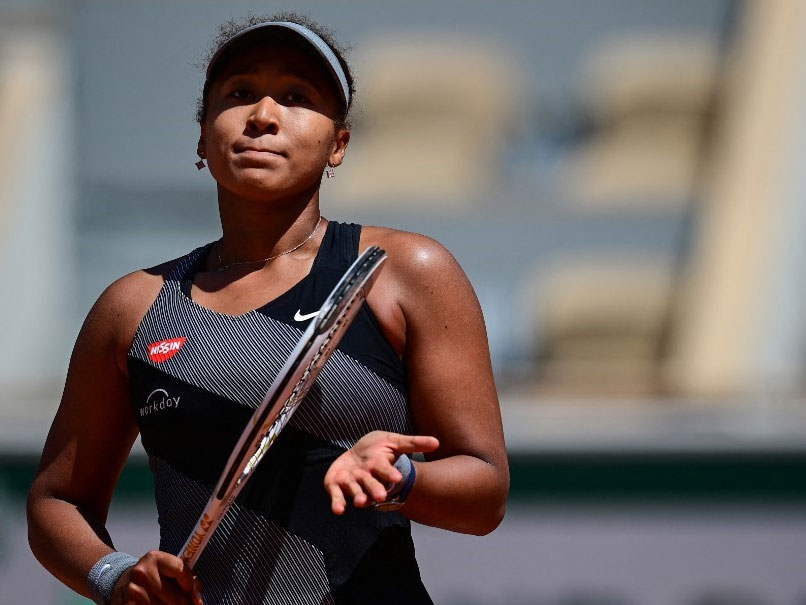Welcome to Tennis Elbow, the column that looks back on the week that was in the world of tennis. This week, Charles Blouin-Gascon recaps the latest decisions from Rafael Nadal, Naomi Osaka and a slew of others.
Naomi Osaka won’t be playing Wimbledon this year.
That’s right, the Japanese made headlines again last week when she announced that she wouldn’t be playing the prestigious grass Grand Slam set to start in a few days. Per her agent, Osaka will be spending time with friends and family and just generally enjoying herself and getting ready for the Tokyo Olympics.
This means that she’s joined Rafael Nadal in pulling out of Wimbledon, as the 35-year-old had previously announced he was withdrawing from the major. He said he did this because he wanted “to prolong my career and continue to do what makes me happy.”
Above all, what makes him happy, and above all rich as hell let’s be real, is playing and winning matches on clay court.
Hi all, I have decided not to participate at this year’s Championships at Wimbledon and the Olympic Games in Tokyo. It’s never an easy decision to take but after listening to my body and discuss it with my team I understand that it is the right decision
— Rafa Nadal (@RafaelNadal) June 17, 2021
But wait, there is more
Because things tend to come in threes, another player soon joined Osaka and Nadal. Late last week, Dominic Thiem announced that he wouldn’t be competing in the Tokyo Olympics either. (He didn’t say anything about Wimbledon, so presumably he’ll compete there.)
Confused yet? If you’re keeping track at home, that’s no to neither Wimbledon nor the Olympics for Nadal, that’s no to Wimbledon and yes to the Olympics for Osaka, and yes to Wimbledon but no to the Olympics for Thiem.
If you factor in Roger Federer essentially spurning Roland-Garros to better focus on Wimbledon, that’s a whole lot of player withdrawals in a short amount of time in tennis.
What’s happening and why?
These three decisions are not technically related to one another, but they fit the same broader pattern.
Which pattern, you say?
Well they’re part of a pattern of decisions made by players in recent weeks and months that showcase their motivation to take back control. When Osaka decides not to compete in Wimbledon but yes to doing so in Tokyo, she’s saying she’d rather spoil her home fans than try her luck once more somewhere where she’s never been very successful. When Thiem withdraws from the summer Olympics, he’s saying he has his hands full enough as is staying motivated with the normal slate of events and doesn’t need to exert mental energy toward an event that ultimately maybe won’t affect his legacy as much as, say, a Wimbledon title would. When Nadal says he’ll skip grass and the Olympics, he’s literally saying he wants to keep playing—and keep winning—for longer than the boost he would get from extra reps at two events where he’s already accomplished it all.
If you zoom out further, we still see the same pattern. We see it when Federer withdraws from the French Open to say he’d much rather compete in Wimbledon—hey, finally someone who wants to—than to be mercifully ousted on clay by either Nadal or Novak Djokovic. We see it when Osaka announced she didn’t want to take part in post-match press conferences to protect her mental health, just like we saw it afterward once she decided to withdraw from Roland-Garros altogether once representatives from the four Grand Slam events doubled down and dared her to do it.
If we zoom out even further, we can even fit Djokovic’s ill-advised pandemic discussions on Instagram Live or his decision to create the Professional Tennis Players Association last summer. All of it done in the name of control.
What’s the end game?
In the end, we can understand why players are more vocal and motivated to enact change where they feel it’s needed. Their livelihood was taken away from them unilaterally last year with pandemic, then brought back once more last summer with seemingly no rhyme or reason behind that of the word that’s one letter away from honey.
Tennis has been just like more or less every other professional sport in that it’s been treated like some sort of essential service since March 2020 when that’s far from the case. As the old cliché goes, tennis players are human too and they’ve been affected the same way we’ve all been by the same pandemic over the past year and change. They have the luxury of playing a game, a sport, for a living yes but their career window was just arbitrarily cut down by a full year. We also assume that it’s pretty hard to motivate yourself to play this game you love when everything around you is going to shit. When every day everywhere around the world thousands of people are dying.
So players change things if and where they can. Whether this becomes a new normal or quickly fades out remains to be seen but we’re hopeful and inspired to see them take ownership.
Because if they can make decisions to change things for the better at their workplace, then surely maybe you can do so as well. And wouldn’t that be great?
Follow Charles Blouin-Gascon on Twitter @RealCBG





















